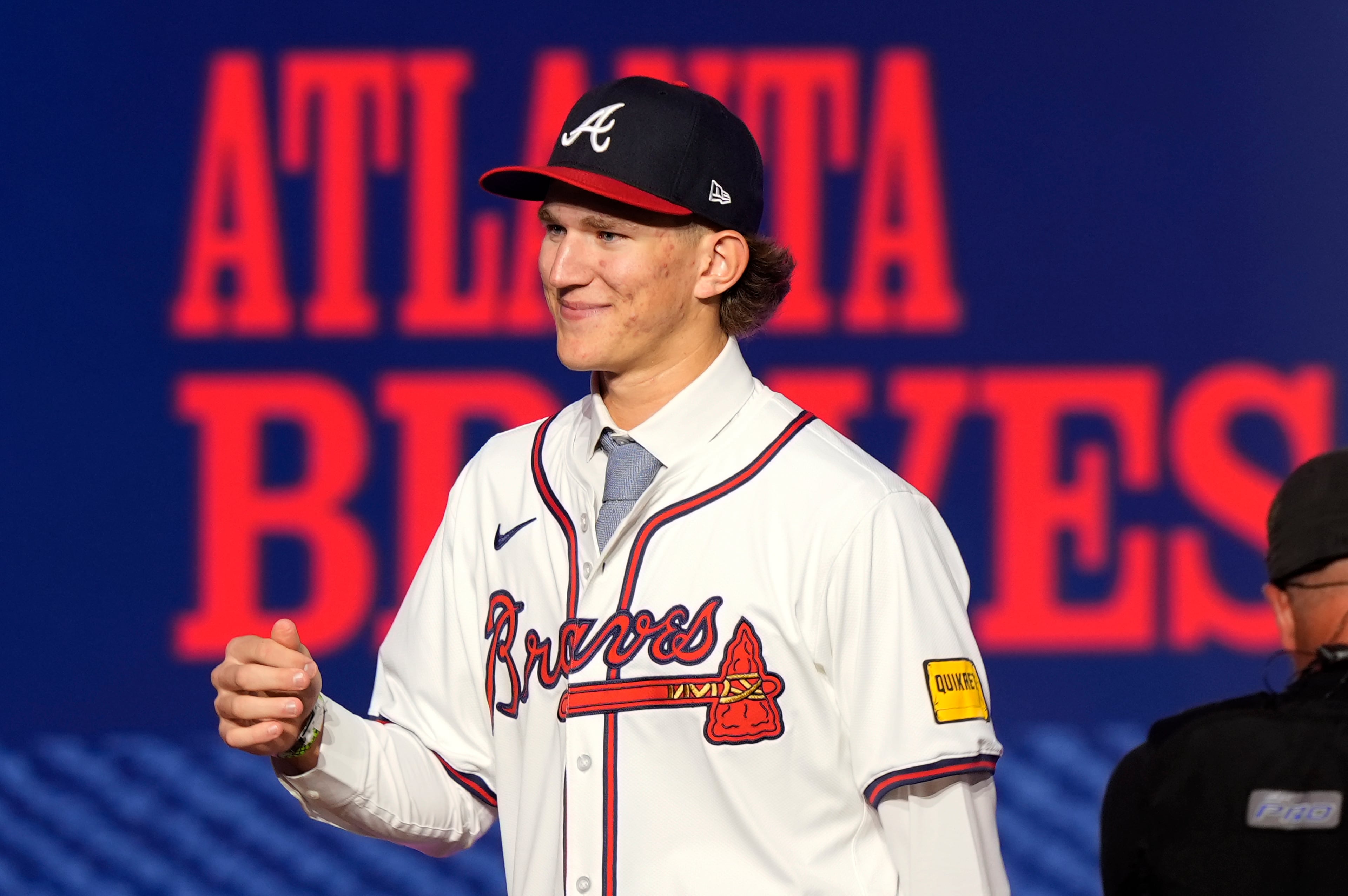Braves take to Gonzalez's new workout methods
LAKE BUENA VISTA, Fla. -- When Fredi Gonzalez took over for retiring Braves manager Bobby Cox, one of the bigger questions that players had was how different spring training would be.
Cox was known for putting on one of the more laid-back camps in baseball. Players were expected to get their work in, but free to go shortly thereafter. For some, that meant getting to the golf course for noon tee times.
One of the first to ask those questions was Chipper Jones, who had played for no other manager in his 17 seasons in the majors. But Jones is among the first to commend Gonzalez for the way he has run camp.
It’s different. There’s more fundamental work, more often, and with greater attention to detail. The Braves have done more bunt plays, more pitchers’ hitting, and more specific defensive drills. All the while, Gonzalez has shown he’s a man with his own philosophy, while still allowing for a smooth transition to the new regime.
“I think it’s been excellent,” Jones said. “It’s been really good, from using more fields to get the pitchers done earlier. There’s less down time.”
The most noticeable change was geographical. For the first two weeks of workouts before games started, the Braves used their entire complex -- four full-sized back fields and an extra infield, as well as the main field at Champion Stadium.
In Cox’s camp, the pitchers threw live batting practice on the main field, one by one. Looking for more efficiency, Gonzalez, bench coach Carlos Tosca and pitching coach Roger McDowell have divided the work on other fields.
Gonzalez has managed to add more fundamental work, which benefits younger players especially, without losing the attention or respect of the veterans.
“I think the camps that Bobby ran are awesome for veterans,” pitcher Tim Hudson said. “And it’s great for young guys who have good work ethic. But who knows if a young guy has a good work ethic or not? The way Fredi is running it, it takes those questions out.”
Jones marvels at the attention to detail paid by Gonzalez, and by extension, Tosca. He pointed to a recent drill the Braves did working on “in-between” ground balls between first and second, with the pitcher covering and the second baseman throwing.
“It’s stuff that you just don’t practice,” Jones said. “That’s what’s been so impressive. We’re thinking about things that are going to happen during the season down here and working on them.”
Jones said Tosca, whom he calls the most prepared coach he has ever played for, turns every drill into a mental repetition, too. Every physical “rep” is made with game scenarios in mind.
Working on stolen bases, with runners first and second and nobody out, Tosca broke it down so the catcher would know where to throw depending on if the hitter was right-handed or left-handed.
“If there’s a righty up, we’ll give signs,” Jones said. “If there’s a lefty up, we’ll give signs, but we’re still going to third. He’s thinking two steps ahead, all the time.”
In fly-ball scenarios, Tosca takes into account both hard and softly hit balls, so outfielders practice whether to throw home or hold the runner at second base.
“The scoreboard dictates the whole game to us,” said Tosca, who now shares a desk with McDowell in Gonzalez’s office at Disney so they can organize their practice plans without disruption. “Any time that we can incorporate the number of outs or simulate a situation of a game, especially a critical situation. ... Obviously we’d like to not only handle the physical part of it, but the mental part, too.”
The more specific, the better. When the Braves come back from their off day Tuesday, Gonzalez is planning a drill to work on cutoffs and relays with a defensive shift on, like they’ll use for Phillies first baseman Ryan Howard.
Gonzalez wants the Braves to control what they can control, on bunt defense, first-and-third situations, cutoffs and relay throws, and fly ball priorities.
“I hate losing a game, but [if we lose] I don’t mind losing a game like the way we did the other day in Detroit -- base hit, base hit, double,” Gonzalez said. “Nothing we could do about that. But if it’s a base on ball, bunt defense, and we don’t know where we’re throwing the ball, it bothers me because that’s stuff you can control as a team.”
That will extend to the regular season as well. Gonzalez plans to hold a 15-minute defensive period before batting practice every day, as weather, injuries and day-to-day issues allow. They’ll mix it up between infield, outfield work, bunt plays, etc.
“I can count on one hand the amount of times I’ve taken infield at the major league level,” Jones said.
He said Cox might hold infield practice only if the Braves were opening a playoff series at a new stadium. Gonzalez is a stickler for it.
He first saw the value in it as a third-base coach under Cox when he watched former Braves shortstop Edgar Renteria take extra infield on his own. Renteria would go out before or after batting practice, when there were no batted balls, base runners or screens to work around.
No matter how veteran the player, Gonzalez thinks they need to sharpen their skills.
“Sometimes we take that for granted -- these are major-leaguers that know how to get ready,” Gonzalez said. “I think you’ve got to practice your skills. If not, they deteriorate.”

